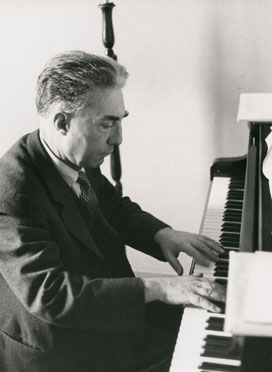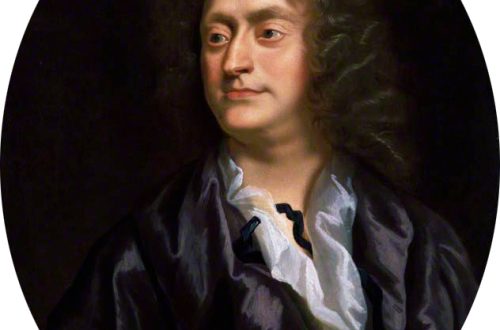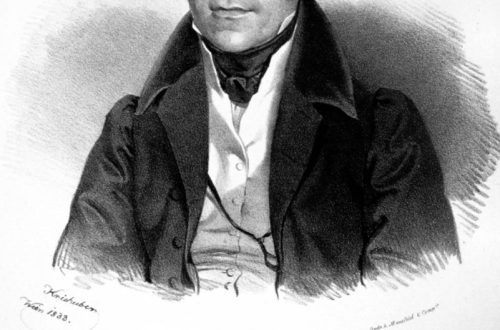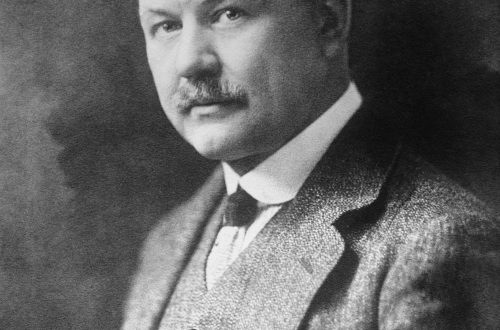
Luigi Dallapiccola |
Luigi Dallapiccola
L. Dallapiccola is one of the founders of modern Italian opera. From the classics of the bel canto era, V. Bellini, G. Verdi, G. Pucci, he inherited the emotionality of melodic intonation and at the same time used complex modern expressive means. Dallapiccola was the first Italian composer to use the dodecaphony method. The author of three operas, Dallapiccola wrote in a variety of genres: music for choir, orchestra, voice and orchestra, or piano.
Dallapikkola was born in Istria (this region then belonged to Austria-Hungary, now partly Yugoslavia). During the First World War, when the Austrian government closed the school of his father (a teacher of Greek), the family moved to Graz. There Dallapiccola visited the opera house for the first time, the operas of R. Wagner made the greatest impression on him. The mother once noticed that when the boy listened to Wagner, the feeling of hunger was drowned out in him. After listening to the opera The Flying Dutchman, thirteen-year-old Luigi decided to become a composer. At the end of the war (when Istria was ceded to Italy), the family returned to their homeland. Dallapiccola graduated from the Florence Conservatory in piano (1924) and composition (1931). Finding your style, your way in music was not immediately possible. Several years in the early 20’s. Dallapiccola, who discovered new horizons for himself (C. Debussy’s impressionism and ancient Italian music), was busy comprehending them and did not compose at all. In works created in the late 20’s. (at the request of the author, they were not performed), a kind of neoclassicism and even the influence of the composer of the 1942th century are felt. C. Monteverdi (subsequently, in XNUMX, Dallapiccola made an arrangement of Monteverdi’s opera The Return of Ulysses).
In the mid 30s. (perhaps not without the influence of a meeting with A. Berg, the greatest expressionist composer) Dallapikkola turned to the dodecaphone technique. Using this method of writing, the Italian composer does not abandon such familiar expressive means as melodious melody and tonality. Strict calculation is combined with inspiration. Dallapiaccola recalled how one day, walking along the streets of Florence, he sketched his first dodecaphone melody, which became the basis of the “Choruses from Michelangelo”. Following Berg and A. Schoenberg, Dallapikkola uses dodecaphony to convey heightened emotional tension and even as a kind of protest tool. Subsequently, the composer will say: “My path as a musician, starting from 1935-36, when I finally realized the primitive barbarity of fascism, which sought to strangle the Spanish revolution, goes in direct opposition to it. My dodecaphonic experiments also belong to this time. After all, at that time, “official” music and its ideologists sang false optimism. I could not help speaking out then against this falsehood.
At the same time, the pedagogical activity of Dallapikkola begins. For over 30 years (1934-67) he taught piano and composition classes at the Florence Conservatory. Performing concerts (including in a duet with the violinist S. Materaassi), Dallapiccola promoted modern music – he was the first to introduce the Italian public to the work of O. Messiaen, the largest contemporary French composer.
Fame came to Dallapikkola with the production of his first opera “Night Flight” in 1940, written based on the novel by A. Saint-Exupery. More than once the composer turned to the theme of protest against violence against the human person. The cantata “Songs of the Prisoners” (1941) uses the texts of Mary Stuart’s prayer before the execution, the last sermon of J. Savonarola and fragments from the treatise of the ancient philosopher Boethius, who was sentenced to death. The desire for freedom was also embodied in the opera The Prisoner (1948), where the plots of the short story by V. Lil-Adan and the novel The Legend of Ulenspiegel by C. de Coster were used.
The collapse of fascism allowed Dallapiccola to have a more active influence on musical life: in the early post-war years, he worked as a music critic for the newspaper Il Mondo and secretary of the Society of Italian Contemporary Music. The name of the composer has become authoritative and abroad. He was invited to teach in the USA: to the Berkshire Music Center (Tanglewood, Massachusetts, 1951-52), to Queens College (New York, 1956-57), and also to Austria – for the summer courses of the Mozarteum (Salzburg).
Since the 50s. Dallapiccola complicates his style, which was also reflected in the most significant work of these years – the opera Ulysses (Odysseus), staged in 1968 in Berlin. Recalling his childhood, the composer wrote that all the characters in Homer’s poem (thanks to his father’s profession) “were like living and close relatives for our family. We knew them and spoke of them as friends.” Dallapikkola even earlier (in the 40s) wrote many works for voice and instrumental ensemble to the words of ancient Greek poets: Sappho, Alkey, Anacreon. But the main thing for him was the opera. In the 60s. his research “Word and music in opera. Notes on Contemporary Opera” and others. “Opera seems to me the most suitable means for expressing my thoughts… it enchants me,” the composer himself expressed his attitude to his favorite genre.
K. Zenkin





